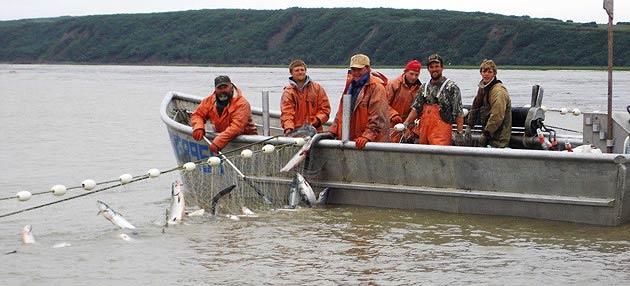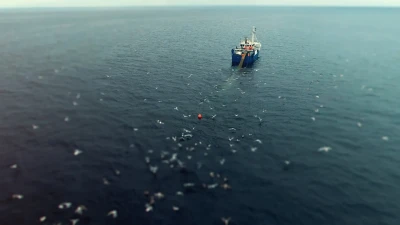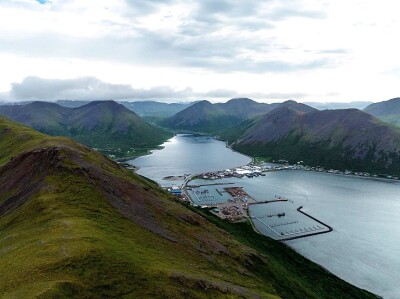As more stringent measures to slow the spread of covid-19 rippled through state governments in early April, Alaska’s salmon industry braced itself for anything between total fishery closures and limited contact scenarios that would isolate fishermen on boats from processors and their crews, support industry specialists and others.
While players in all facets of the industry say details in sophisticated plans have been changing daily, all of them admit this year’s crop of salmon are on their way. Unlike some fish species that can be left in the ocean and harvested after the virus has passed, this year’s return of spawning salmon will return and die by the end of summer.
“These aren’t like crab or lobsters or other long-lived species that will mill around in the ocean until their eventual harvest after the virus passes,” says Harry Moore, a lifelong salmon fisherman from Naknek.
Moore and others worry that some river systems might not handle an onslaught of spawning salmon that would otherwise be held in check with the harvest by the fleet. Elsewhere in the state, fishermen, processors, tenders and communities began drafting operational plans.
The plans have been changing every day, as teams discover new considerations, says Tim Moore, a seiner and chairman of the board of directors for the Prince William Sound Aquaculture Corp.
“We’re trying to come up with something the industry can work with that complies with the mandates of the state,” says Moore. “So that process has morphed into something that makes more sense.” At the same time, Moore adds that each day brings new uncertainties.
Management of the fisheries by Alaska Department of Fish & Game will likely be hampered. Camps where biologists and fishery teams monitor salmon weirs would likely face shutdowns, as would aerial surveys, which require a pilot and a biologist in the same airplane.
“How do you maintain social distance when you’re both crammed into a Super Cub?” says Moore.
As for markets, the general consensus is that canned products and some frozen fillets should be able to find outlets. Fresh markets will face immense hurdles with the widespread closures of restaurants around the world.
“Shelf-stable salmon is probably going to be OK,” says Moore. “But with restaurants closed, we can pretty much conclude that demand for high-end fresh products is going to be significantly reduced."







